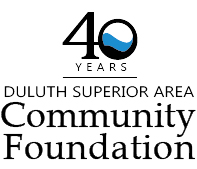Mission
The Community Foundation has three strategic areas of investment for our Community Opportunity grant funding: Opportunity, Resilience and Belonging. (See descriptions and links to details below.) This funding supports our fantastic partners in their life-changing work throughout our region. We also see an even deeper need to support collaborative and transformational work, changing systems across these strategic areas. This is upstream work. It’s the call that collectively we must come together and make upstream changes in order to solve problems and to make real and lasting difference in community, building thriving community for all. We will fund work aimed at solving for the root causes of our toughest problems centered in opportunity, resilience and belonging. There are many intersections and overlaps in these focus areas, and all are part of building a thriving community for all. Priority is given to collaborative solutions to these complex areas, bringing together partnerships among non-profit, public and private organizations, and impacted community members.
Albert Einstein said, “A human being is a part of the whole, called by us ‘Universe,’ a part limited in time and space. He experiences himself, his thoughts and feelings as something separated from the rest – a kind of optical delusion of his consciousness. This delusion is a kind of prison for us, restricting us to our personal desires and to affection for a few persons nearest to us. Our task must be to free ourselves from this prison by widening our circle of compassion to embrace all living creatures and the whole of nature in its beauty.” This funding advances a vision of a community that centers our interdependence, uplifting the well-being of all of our people, our community and our environment.
Opportunity
This focus on Opportunity supports efforts for upward mobility leading to economic success and power and autonomy of individuals over their own lives, particularly with historically marginalized populations. Factors for economic success include increasing income and assets through housing affordability and stability, employment opportunities paying living wages and wealth-building opportunities, and access to high quality education and wellbeing supports from prenatal through career. Power and autonomy mean people having dignity in controlling their own lives, being able to make choices and believing in their ability to collectively influence larger policies and actions that affect their futures. For the full description of Opportunity, please visit (link to Opportunity Guidelines).
Resilience
Resilience is “the ability of people, households, communities, countries and systems to mitigate, adapt to and recover from shocks and stresses in a manner that reduces chronic vulnerability and facilitates inclusive growth” (USAID, Resilience Evidence Forum Report, 2018, https://www.resiliencelinks.org/about/what-is-resilience). Shocks are events that decrease communities’ ability to function over a relatively short amount of time (e.g., severe thunderstorms, flooding and mega-rain events, epidemics, etc.). Stresses are chronic conditions that weaken the functioning of communities over long periods of time and decrease communities’ abilities to cope with shocks (e.g., low availability of housing that is affordable, inequities, limited access to affordable and high-quality childcare, etc.).
With our communities facing a multitude of challenges and hazards, and more anticipated amidst climate change, the Community Foundation is investing in redesigning and building the capacities of organizations and systems to be better equipped to navigate shocks and stresses, and address the root causes of our vulnerabilities deeply tied to inequities. The well-being of our communities depends on our ability to mitigate, adapt to and recover from shocks and stresses. A model the Foundation has piloted, called COPEWELL (https://copewellmodel.org/copewell-framework-0), describes the holistic aspects of community resilience to disasters. This includes community functioning (e.g., housing, well-being, economy, care, etc.), population factors (e.g., inequality, deprivation, vulnerability), prevention/mitigation factors (e.g., natural systems/environment, engineered systems, countermeasures), and resources for recovery (e.g., social cohesion, preparedness & response, external resources). For the full description of Resilience, please visit (link to Resilience Guidelines).
Belonging
The Community Foundation seeks to make the region a place where everyone can feel they belong and are respected, safe, and able to thrive as part of the community. This focus is influenced by New Pluralists, a funder collaborative fostering a culture of pluralism in America (https://newpluralists.org/approach/). For the full description of Belonging, please visit (link to Belonging Guidelines).
Core values that must be centered in this work:
- Collaboration (i.e., complex challenges cannot be solved by one organization alone, requiring partnerships and alignment of strengths.)
- Systems change (i.e., fundamental shifts that address root causes of inequities),
- Deep and meaningful community engagement (i.e., processes that are accessible, redistribute power, uplift local expertise, and earn trust of people with lived experience)
- Continuous learning and improvement (i.e., delivering better outcomes by gathering and using information to assess and reflect upon success and challenges to adjust practices)
- Centering human beings (i.e., changing narratives about Black, Indigenous and People of Color, and people with low incomes, and building understanding between people with diverse identities, abilities and experiences)
The Community Foundation anticipates using a cohort model to advance these shared goals that is grounded in these values and an abundance approach.
Funding will not support endowments; religious organizations for religious activities; medical research; debt retirement; requests from re-granting organizations for funding to be used for their own grant making activities; individuals (except scholarships initiated or managed by the Community Foundation); political campaigns or lobbying; tickets for benefits; telephone solicitations; fundraising drives or activities.
Eligibility
To be eligible to apply for funding, an organization must:
- Be classified as a charitable organization under Section 501(c)(3) of the Internal Revenue Code or classified as an organization under Section 170(c)(1) of the Internal Revenue Code or have a fiscal sponsor classified as a charitable organization under Section 501(c)(3) of the Internal Revenue Code or an organization under Section 170(c)(1) of the Internal Revenue Code
- Be located in or provide service to residents within: Bayfield, Douglas and Ashland Counties in northwest Wisconsin; or Aitkin, Carlton, Cook, Itasca, Koochiching, Lake and St. Louis Counties in northeast Minnesota; or the Bad River Band of Lake Superior Chippewa/Mashkiiziibii, the Bois Forte Band of Chippewa/Atisokanigamig, the Fond du Lac Band of Lake Superior Chippewa/Nah-Gah-Chi-Wa-Nong, the Grand Portage Band of Lake Superior Chippewa/Gichi Onigaming, the Leech Lake Band of Ojibwe, the Mille Lacs Band of Ojibwe or the Red Cliff Band of Lake Superior Chippewa/Gaa-Miskwaabikaang
Grant range
Up to 5 years of funding of up to $100,000 per year
Application timeline
Fall Grant Cycle
- Application available August 1, 2024 – October 1, 2024 @ 5:00 pm
- Project begin date: January 1, 2025, or later.
- If awarded, funds would be available in January 2025. Notifications will be emailed at the end of December 2024.


